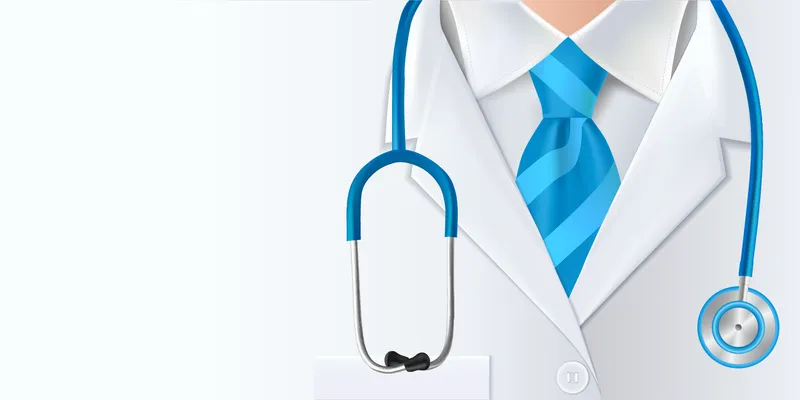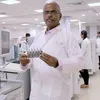National Doctors’ Day: Saluting the corona warriors who are tirelessly waging war against COVID-19
All through the COVID-19 pandemic, doctors have been on the frontlines, working tirelessly to treat patients. Ahead of National Doctors’ Day, YourStory spotlights a few medical practitioners who keep the wheels of India's healthcare system turning.
The COVID-19 pandemic brought home a truth we've known all along but often forget amid the busyness of life: health is wealth.
In this chaotic time, doctors were on the frontlines, working untiringly to help, heal, and offer us all hope. They put themselves at risk, worked endless shifts, made life-altering choices, and saved countless lives.
But despite their tireless work, several cases of harassment and violence against them were reported across the country.
Ahead of National Doctors’ Day, celebrated on July 1 to honour iconic medical practitioner and the second Chief Minister of West Bengal Dr Bidhan Chandra Roy, we all need to remember to appreciate and honour the doctors who are battling to save us all.
YourStory spoke to numerous doctors across India, medical experts working inside and outside COVID-19 wards, to know more about their state of mind and more during these trying times. Most medical practitioners were unanimous that people need to trust their doctors and believe that they are doing only their best to help patients.
Dr Shalini Joshi, Internal Medicine Consultant at Fortis Hospital, Bengaluru, who has also been working in COVID-19 wards says people need to have “gratitude towards doctors.”
“People need to respect doctors and have an attitude for gratitude. When we are doing our COVID-19 rounds, we can’t go near our families, we need to stay separate from our children. There is a need for people to understand this and respect doctors. With incidences of violence, doctors are getting scared of working because they are getting beaten up,” she says.

[Image Credit: Shutterstock]
Shift in treatment model due to pandemic
Most doctors agree that most consultations, treatments, and follow-ups were done offline in the pre-COVID era, but processes have largely shifted online now. People are scared to visit doctors and OPDs, fearing infection, which is why many opt for online consultations and remote monitoring services.
A recent IAMAI-Praxis report, HealthTech Predictions 2021, revealed that the number of consultations via teleconsultation platforms increased by 300 percent in 2020 and that about 80 percent of these people were first-time users.
While digital consultations have helped patients get access to doctors across the country from the comfort of their homes, the digital shift has disrupted the one-to-one connections doctors could build with their patients.
Dr Tejas Thakker, Orthopaedic Specialist at Apollo Hospitals, Ahmedabad, feels there is an emotional disconnect with patients due to the digital shift – and the covering of faces by masks. He says “doctors can sometimes analyse by looking at a patient’s face” but that emotional connection is now lost due to the change in treatment style brought about by the pandemic.
Dr Sameer Rathi, Consultant, Emergency Medicine, Kokilaben Dhirubhai Ambani Hospital (KDAH), Mumbai, agrees that there’s a “big difference” between “seeing” a patient and “examining” a patient.
“We can see the patients via video or Zoom calls, but we cannot examine them. Doctors are treating symptoms that patients reveal, but we can’t use our stethoscope or measure vitals ourselves. We need to rely on whatever the patients say.”
However, Dr Gayathri D Kamath, Senior Consultant of Obstetrics and Gynaecology, Fortis Bengaluru, believes that an online-offline hybrid model can be worked out “at least in some cases” and is a feasible model that can be maintained even post-pandemic.
COVID-19: Also an unknown for doctors
The deadly second wave of COVID-19 crippled India’s healthcare system. As medical systems floundered, the disease hit doctors particularly hard.
According to the Indian Medical Association, 798 doctors died during the second wave across the country, of which maximum (128 doctors) lost their lives in Delhi, followed by Bihar at 115.
This was despite the fact that while the first wave was a first-time experience for doctors and they “had no clue on how to treat it”, the second wave had the healthcare segment more “prepared”.
“I don’t think anyone of us has ever really dealt with anything this infectious, at least at this scale. In my career, this is my third pandemic apart from HIV and H1N1 outbreaks. But all fail in front of this one,” says Dr Vivek Anand Padegal, a Senior Consultant and Director in Pulmonary Diseases Dept at Fortis Bengaluru.
Dr Tejas agrees, stating that doctors are also facing such a crisis for the first time and patients need to understand and have patience and trust in their doctors.
“No doctor will want their patients to suffer in any way, but please realise that doctors are not gods. We are trying our best to help patients. People need to trust their doctors, ” he adds.
Medical experts also say the second wave was highly infectious, which led to a rapid surge in the number of cases. This was coupled with a lack of adequate infrastructure, shortage of medicines, medical staff, oxygen among others, which deepened the crisis.
“It was really pathetic to see the country in this situation. Relatives were calling us for beds and medicines, but we were not able to manage. We felt disappointed and agitated because we couldn’t help. But it’s not the fault of anyone; the entire system failed,” Dr Tejas says.
COVID-19 pandemic has been a challenge for all of humanity, but it has been nothing less than a war for doctors. Even as they risked their lives every single day, most doctors were pushed into physical and mental exhaustion. Burnout and depression rose as doctors across India fought to keep their patients alive.
“COVID-19 is an overwhelming experience for anyone working in the healthcare sector. Doctors mostly had no prior experience about the disease and also had to deal with infrastructure issues. It was overwhelming as our peers and family members were also affected. I pray to God that we don’t face this again,” says Dr Maharshi Desai, Critical Care Specialist, Apollo Hospitals, Ahmedabad.

Image Credit: Shutterstock
What doctors want
Despite the many problems, all doctors are clear on one thing: the need to go and treat patients.
And as India awaits and hopes against a possible third wave, medical experts say precaution is the best way to stay safe.
Dr Bharat Jagiasi, who heads the ICU and COVID department for Reliance Hospital, Navi Mumbai, says he only has one wish and expectation from people: follow COVID-19 protocols.
“Going out, not following rules, and hoping that nothing will happen is only going to increase our burden. People need to follow strict protocols; this is how they can save themselves from the disease,” he says.
Doctors reiterate the need to “respect doctors” and understand that medical professionals are doing their best, each and every day.
“When the whole world was panicking, we were treating patients. The disheartening thing is when doctors are beaten up for no fault of theirs,” Dr Gayathri says.
Dr Shalini draws attention to the need for a better medical legal system in India to support healthcare workers.
At a time when medical workers are going beyond the call of duty to help us survive the pandemic, respecting and appreciating them is the least we can do. It is more important than ever now that we follow protocols, take vaccines, and double mask up to save ourselves – and our doctors!
Edited by Teja Lele









